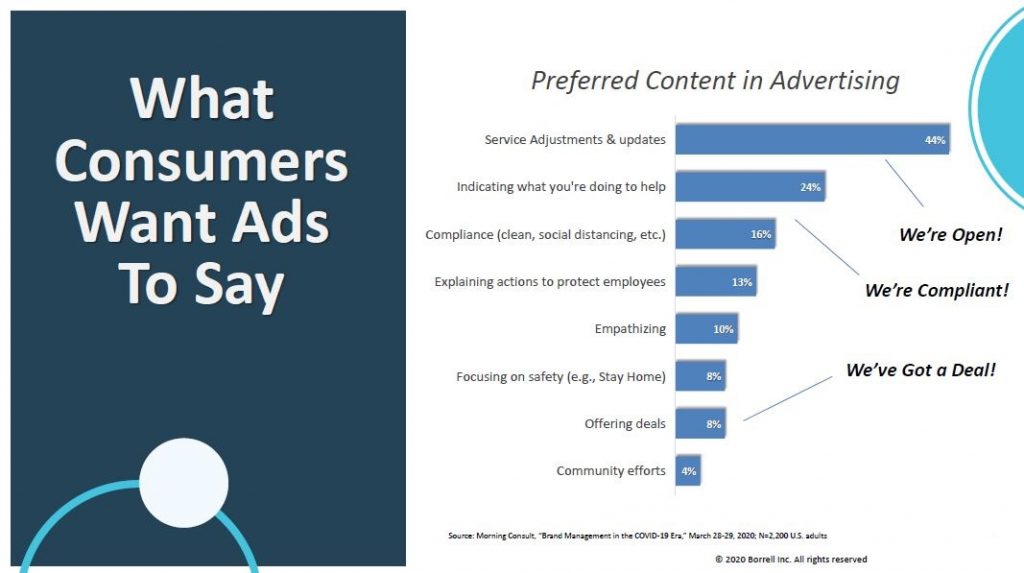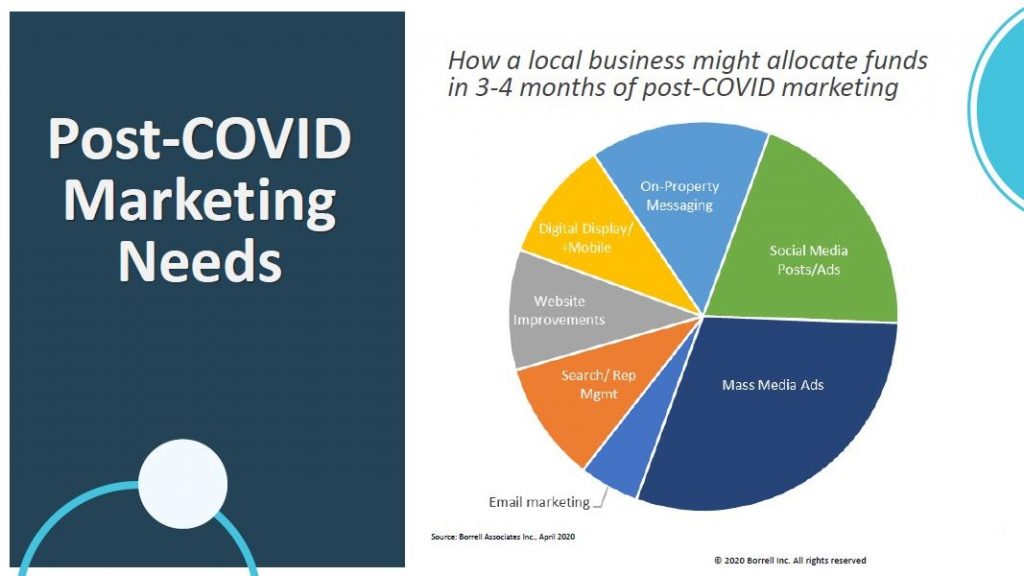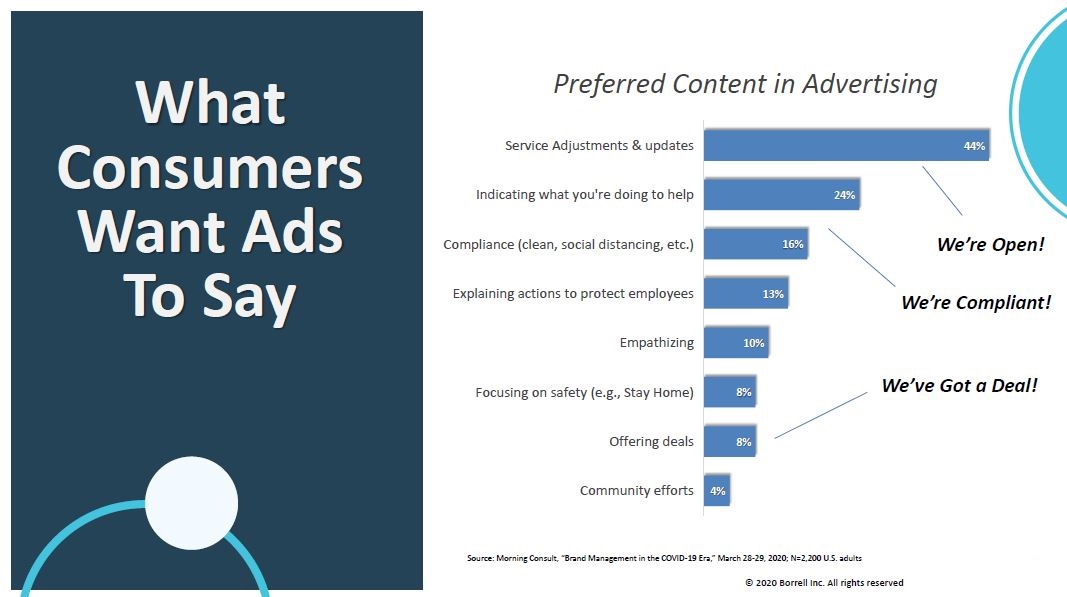As Hoosiers Are Phased Back In To Society, The Right Tone For Commercial Messaging Is Critical.
Noted in last week’s blog, there are many reasons for business to advertise during difficult times.
However, COVID-19 has shifted business trends and consumer priorities meaning companies need to talk / communicate / advertise differently than prior to the outbreak.
And how you change your message matters a great deal! A recent crisis marketing seminar by Borrell & Associates titled “The Grand Reopening” offered good insights on societal expectations. From this plus feedback from countless businesses and industry experts, I’ve distilled the following key takeaways for best practices when developing your ads now.
3 Don’ts
- Steer clear of clichés that are hollow, empty or have too much “sameness” with many other commercials.
This is on display in a recent the video montage that lightly pokes fun at how sappy and ordinary many nationally produced ads have become during the pandemic with seemingly endless use of phrases like “times like these,” “more than ever,” “home,” “family,” and “here for you” and “we’ll get through this together.” If you have not yet seen it, watch it now:
2. Do not use strong urgency in ads.
Saying “Call now” is fine; but excitement- or scarcity-driven copywriting, especially if delivered with a hollering announcer, is a no-no. Phrases like “Don’t miss out!” or “Get yours before it’s too late!” are not going to resonate right now.
Nothing is as urgent as COVID-19, and until Americans come to terms with the new normal on dealing with it this type of pressing tone in advertising will likely to come across as off-putting.
3. Avoid excessive focus on product features.
While consumers do have needs, for the time being they’re as interested in what you do as they are in what you have.

3 Dos
- Be authentic.
This can be especially impactful if it’s a local &/or family owned operation. Craft a script that shows an approachable, human side to your business. Being vulnerable is more than okay. Customers respond to this.
2. Take a supportive stance.
Instead of words like “capitalize,” “advantage,” “offer,” “gain,” “profit” – use “contribute,” “connect,” “play a role,” “navigate,” “cope,” “respond”.
- (For example, among the Federal government’s recent measures is a steep interest rate cut but mortgage broker’s ad saying “Take advantage of the low interest rate now!” conveys an inappropriately exciting message. Instead saying something like, “Let us help you navigate the unstable economy” respects the situation and offers security.)
3. Think contribution.
Your customers are your community. Let them know how you’re responding to Coronavirus, if anything has changed about how you’re conducting business and reinforce what health precautions you’re taking for buyers and employees.

Voice Conveys Emotion
As the Borrell seminar graph above suggests, traditional broadcast media should be a key component to businesses’ marketing moving forward.
This is because mass media advertising excels at establishing and maintaining a bond with your existing and potential customers. That bond is often based on emotion, especially during a time of crisis like a pandemic.
Radio’s intimacy – the comfort of a human voice – thrives at conveying emotion. Below are some recent examples of ads my company has recently produced for Indy businesses. Contact me if you’d like help for yours.
